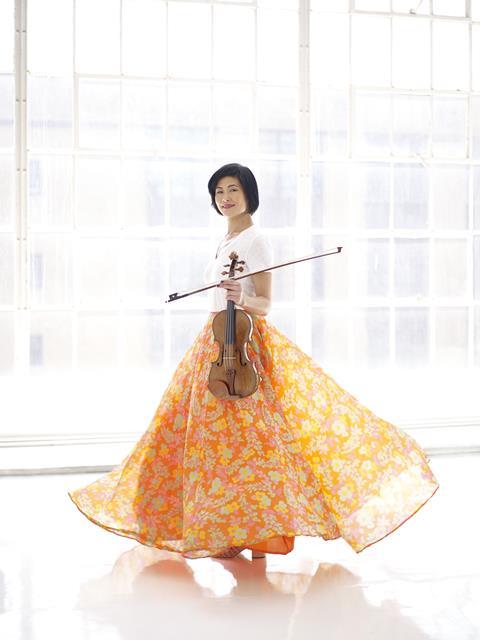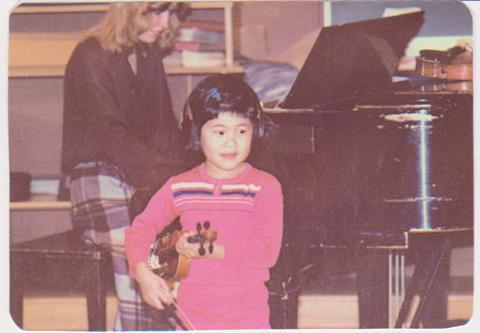The US violinist on the importance of our decisions and promoting inclusivity

Discover more Featured Stories like this in The Strad Playing Hub.
Read more premium content for subscribers here
I don’t think I would be a violinist today if it wasn’t for my very first teacher, Jo Davis. When I was around seven years old, she told my parents that she wanted me to study with more advanced teachers and took it upon herself to look for new teachers for me. She chose the teachers she thought would be best for me and drove me to lessons every week (a one-hour drive each way!). She also practised with me every day to make sure I had understood what those teachers had said. The amount of time and effort she invested in me has since profoundly affected my outlook on music and life.
This is similar to the lessons I learnt from violinist Bronisław Huberman’s story. One of my dear teachers, Felix Galimir, was saved by Huberman during World War Two. When Felix came to the US as a result, he fundamentally shaped string playing in the country. There is not one major US orchestra that doesn’t have players with some sort of link to him. I don’t know if Huberman knew that his choice to help would impact generations of musicians and audiences in the US. His action to help save the life of another person would have been significant enough. He, and my teachers, taught me that each decision we make is important – whether through the decisions we make when crafting programmes, who we mentor, or where we take our points of inspiration, and ultimately how we place the form of classical music in a larger international context.
Our mission is larger than ourselves and our careers
As musicians, 99 per cent of what we do is about listening. We practise in order to be free of the technical burdens of playing an instrument so that we can spend most of our efforts listening and reacting to others. In life, the art of listening is about empathy and emotional connections. As a result, music can teach us that our lives need to have a mission larger than ourselves and our careers. What matters in the end is what we have done for others. Each choice we make impacts the lives of others.

We must be aware of our choices: are you actively choosing to play a passage on a certain string or play a specific tempo, or are you just doing it because it’s been done before? When I return to pieces I have played my entire life, I make sure to have a completely fresh score, so as to not fall into the same habits. I am inspired when I see and listen to artists – from any artistic field – push themselves in new directions and continue to evolve. We need to be careful not to value our own knowledge over others’, because there is always so much we can learn.
My teachers were able to imagine a world that I was a part of. Because of that experience, I realised there’s a responsibility for us to keep actualising that presence in classical music, so that everyone can feel invited in this community. And when it comes to fighting for equity, it comes down to putting that time and effort in – just like Mrs Davis and Mr Huberman. Ultimately, it’s worth it because we all lose out if we don’t hear the perspectives of others.
INTERVIEW BY RITA FERNANDES
Read: Masterclass: Jennifer Koh on ‘Méditation’ from Souvenir d’un lieu cher
Read: Sentimental work: Jennifer Koh on Kaija Saariaho’s ‘Graal théâtre’
Discover more Featured Stories like this in The Strad Playing Hub.
Read more premium content for subscribers here
The number one source for playing and teaching books, guides, CDs, calendars and back issues of the magazine.
In The Best of Technique you’ll discover the top playing tips of the world’s leading string players and teachers. It’s packed full of exercises for students, plus examples from the standard repertoire to show you how to integrate the technique into your playing.
The Strad’s Masterclass series brings together the finest string players with some of the greatest string works ever written. Always one of our most popular sections, Masterclass has been an invaluable aid to aspiring soloists, chamber musicians and string teachers since the 1990s.
American collector David L. Fulton amassed one of the 20th century’s finest collections of stringed instruments. This year’s calendar pays tribute to some of these priceless treasures, including Yehudi Menuhin’s celebrated ‘Lord Wilton’ Guarneri, the Carlo Bergonzi once played by Fritz Kreisler, and four instruments by Antonio Stradivari.













































No comments yet